Tradition meets festive spirit in Janmashtami celebrations of the Pathare Prabhu and Gujarati-vaishnav communities
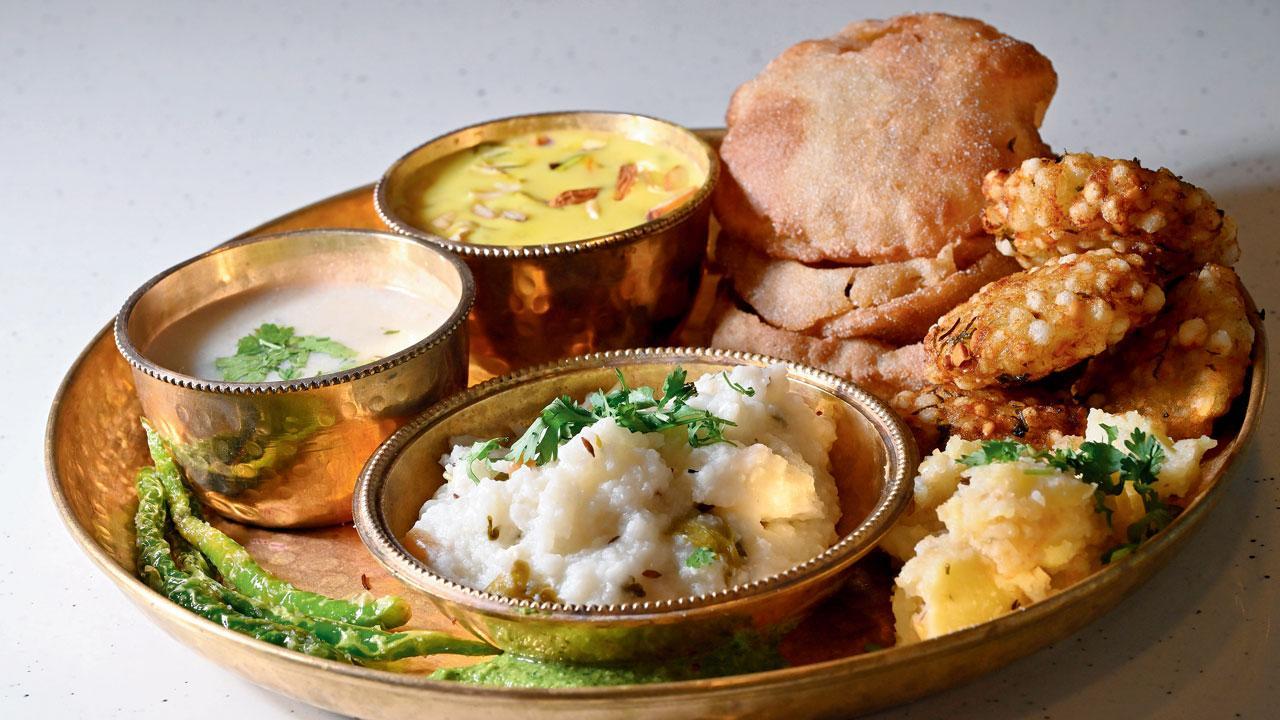
Farali sabudana kheer
At her Prarthana Samaj home, 78- year-old Urmila Asher, founder of Gujju Ben Na Nasta fondly known as Ba, is already immersed in the Janmashtami spirit, frying rajgira puris and stirring kheer for our farali lunch. The simple thali—puri, sukhi bhaji, sabudana wada, kadhi, samo, and sabudana kheer—offers a nutritionally balanced meal, perfect for fasting. Farali foods, made from permitted ingredients and free of grains, onions, and garlic, support spiritual cleansing and are light on the stomach, reflecting India’s rich culinary traditions passed down through generations.
ADVERTISEMENT
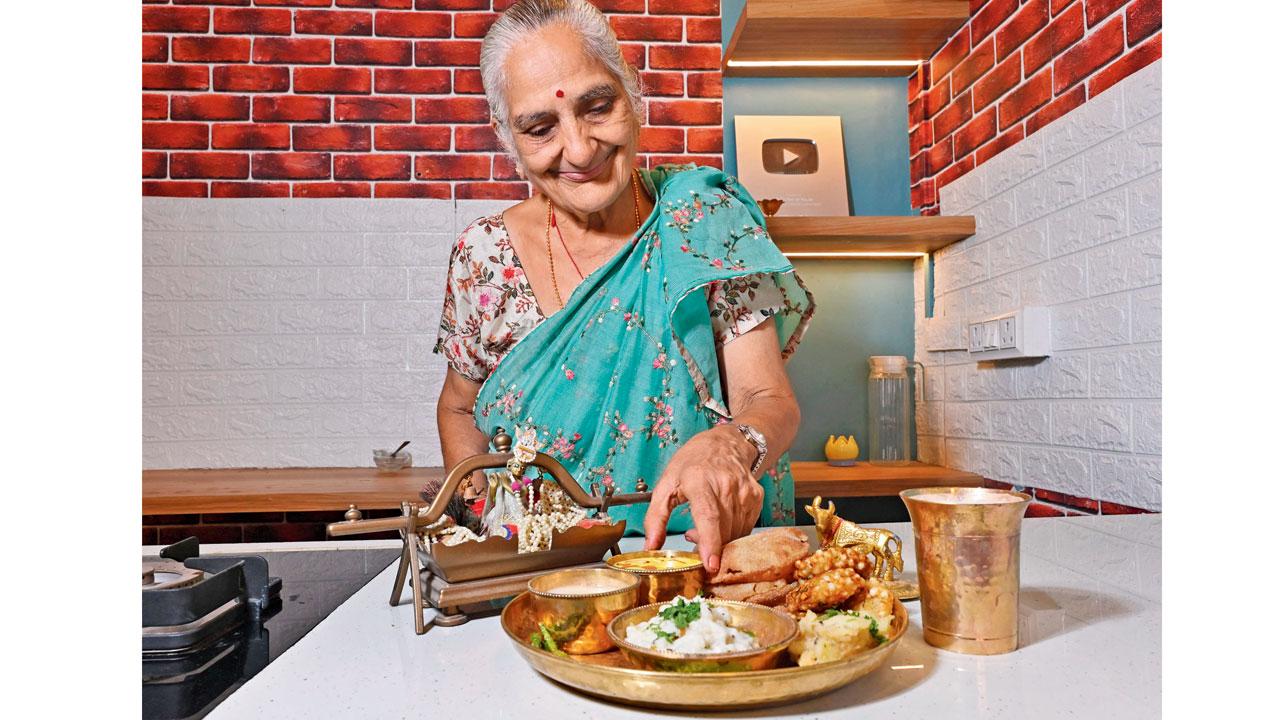
Urmila Asher, a.k.a Masterchef ki Ba sets a farali thali at her Charni Road residence. Pic/Atul Kamble
Ba cherishes the spirit of Janmashtami celebrated on Rohini Nakshatra when Lord Krishna was born. “For us [Hindu] Gujaratis,” she explains, “fasting on this day is more than a ritual; it’s a way to purify our mind and body as we welcome Krishna into our hearts. We prepare farali dishes as bhog, symbolising our love and devotion.” A highlight for her is placing baby Krishna in a decorated cradle, swaying it gently as a mother would her infant, a ritual that deepens her connection to the divine.
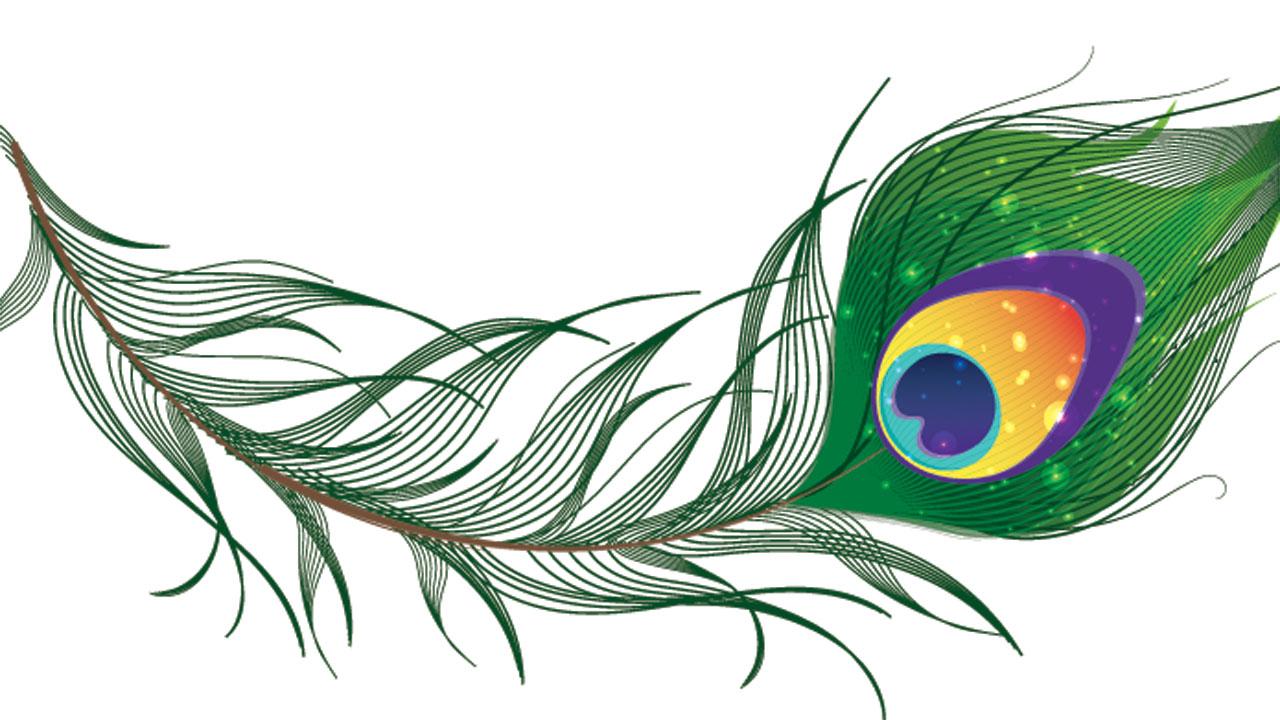
Like most grandmothers, food is the language of love for Ba. “What I love most about Janmashtami is the energetic spirit of celebration,” she says. “From the beautifully adorned temples and homes to the uplifting bhajans and kirtans, every detail is filled with joy and devotion. It’s a time for families to unite, share Krishna’s divine leelas, and celebrate his birth. It deepens our connection with Lord Krishna, reminding us of his teachings on love, compassion, and righteousness. I cherish these enduring traditions and as I partake in these rituals, I experience a renewed sense of peace and happiness.”
Farali sabudana kheer
Ingredients
1/2 cup sabudana (tapioca pearls)
4 cups cow’s milk
1/2 cup sugar (adjust to taste)
2-3 pods of green cardamom, crushed
Handful of chopped nuts (cashews, almonds, raisins)
1 tbsp ghee
A few strands of saffron soaked in 2 tbsp warm milk
1-2 tbsp grated coconut (optional)
Rock salt, a pinch (optional)
Method
Wash the sabudana thoroughly under running water and then soak for two to three 3 hours till it swells up and becomes soft. In a heavy-bottomed pan, heat the ghee and roast chopped nuts and raisins until golden. Set aside. In the same pan, add the soaked sabudana and sauté for one to two minutes until they turn translucent. Now, add the milk to the pan and bring to a boil while stirring occasionally to avoid burning. Once it starts boiling, lower the heat and let the kheer simmer on low heat until the sabudana becomes soft and the milk thickens. Stir occasionally. Add sugar and stir well. Let it simmer for a few more minutes until sugar dissolves completely. Add crushed cardamom, saffron milk, roasted nuts, and grated coconut. Mix everything together well. Cook for another two to three minutes, and then turn off the heat. You can add a pinch of rock salt to balance the sweetness. Serve this delicious farali sabudana kheer warm or chilled.
Rajgira puri
Ingredients
1 cup rajgira (amaranth) flour
1 medium-sized potato, boiled, mashed
Rock salt (sendha namak) to taste
1-2 green chillies, chopped
1 tsp cumin seeds (jeera)
1 tbsp chopped coriander leaves
1 tsp ghee or oil for kneading
Oil for frying
Method:
In a mixing bowl, mix together rajgira flour, mashed potato, green chillies, cumin seeds, and chopped coriander leaves. Add rock salt as per taste. Add one tsp ghee or oil and mix it again; this will help make the dough smooth. Add water little by little and knead into a soft dough. The potato will bind the dough, so don’t add too much water at once. Cover and let rest for 10 to 15 minutes. Portion into equally-sized small balls. Grease your hands with a little oil and flatten the dough balls into small puris. You can also use a rolling pin, but be gentle as the dough is delicate. Heat oil in a pan. Check heat, and carefully slide in the puris and fry on medium heat until they puff up and turn golden brown. Place on kitchen paper to drain excess oil. Serve hot with your favourite farali subzi or yoghurt.
For the Pathare Prabhus, one of Mumbai’s oldest Maharashtrian Hindu communities, Gokul Ashtami (as called in Marathi), is a vibrant mix of traditional rituals and cultural practices deeply rooted in heritage. The day begins with a puja where idols of Lord Krishna are bathed, dressed in new clothes and jewellery, and placed in cradles adorned with care. Devotees perform aarti and offer sweets, fruits, and panchamrit (a blend of milk, curd, honey, sugar, and ghee) to the deity.
Fasting is an integral part of the celebration, with many observing a fast until midnight, the time of Krishna’s birth. Chef Bimba Nayak narrates, “At midnight, Lord Krishna’s idol is set in the cradle, and prasad of milk, yoghurt, and butter is offered. Hymns are sung in his praise to celebrate his birth.” The community has a rich musical tradition with classical tunes passed down through generations. In some homes, the younger members of the family perform plays or narrate stories from Krishna’s life, adding a personal touch to the festivities.
The next day is marked by the energetic celebration of Dahi Handi, where a clay pot filled with milk, curd, butter, water, coconut, and cucumbers is suspended between buildings. Various Govinda teams form human pyramids to break the pot, echoing Krishna’s playful antics with his friends. The celebration continues with a feast, featuring traditional Pathare Prabhu dishes such as bhujne, masala bhaat, kelyachya poli, and kerolya (stuffed banana patties with a coconut filling). The community also performs evening poojas with sunthavada and milk curd prasad, bringing the day to a close in a spirit of devotion and togetherness.
Kelyache poli

INGREDIENTS
1 cup maida or semolina
3 Rajeli bananas (large; 4 if small)
1 cup sugar
2 tbsp elaichi powder
1/2 tsp nutmeg powder
3 tbsp ghee for dredging
METHOD
Make a soft dough out of maida or rawa, keep aside. Steam the bananas and mash them in a mixer. Transfer to a kadai, add sugar, elaichi powder, and ghee. Stir until it leaves the sides of the pan and forms a soft ball. It should hold itself. Let cool completely. Stuff this into the dough balls. Roll out on the oiled banana leaf sheet and roast on a tawa till done. It should be golden brown on both sides.
VARIATION: Apricot can be used as a substitute. It must be soaked and grounded, and then steamed and mashed like the bananas.
KEROLYA
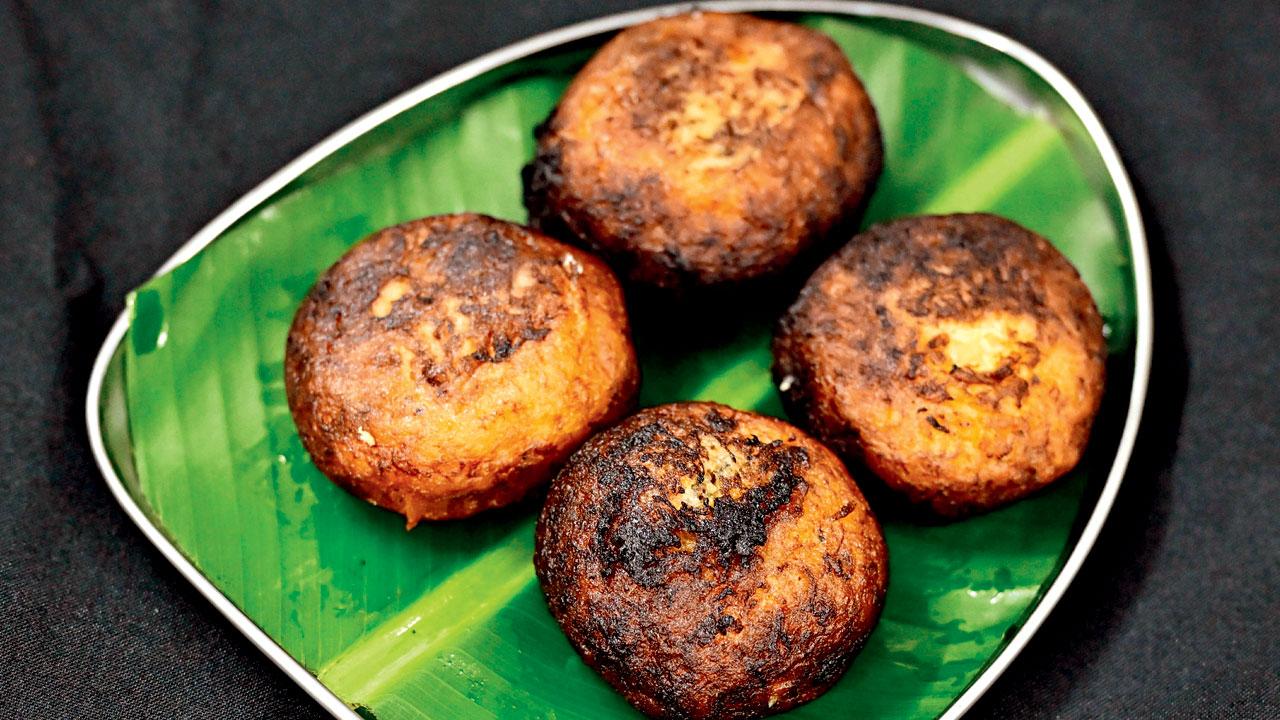
INGREDIENTS
12 ripened Rajeli keli (Kerala banana will do)
For the filling
2 cups freshly-grated coconut
375 gms sugar
30 gm cardamon
Pinch of saffron
25 gms almonds
25 gms pista
50 gms raisins
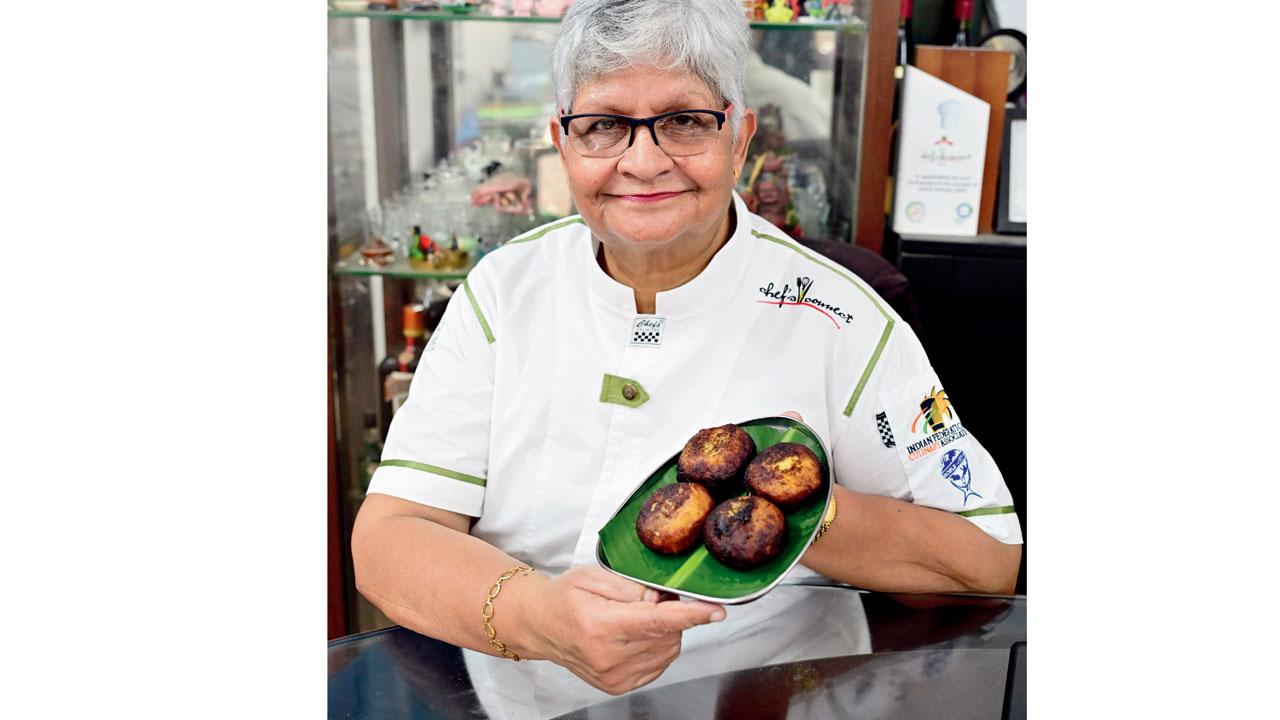
METHOD
Steam the bananas in a modak patra and mash while hot. Knead into a dough. Mix all the ingredients for the filling on slow fire till the sugar melts. Make lemon-sized balls of the banana dough. Grease your palm with ghee and make a deep dent in the centre for stuffing. Add a spoonful of filling, close the dent and shape into a pattice. Fry in a deep pan. Serve.
Also Read: From culture to sport: How Dahi Handi is transforming – insights from Mumbai’s govindas
 Subscribe today by clicking the link and stay updated with the latest news!" Click here!
Subscribe today by clicking the link and stay updated with the latest news!" Click here!







